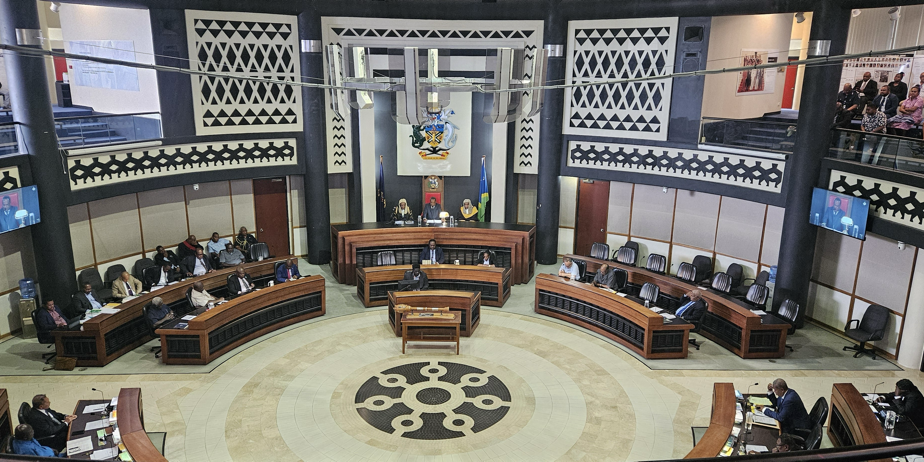The National Parliament has been reminded about the need to spend public finances wisely on strategic priorities.
The Governor General (GG) His Excellency Sir Reverend David Tiva Kapu issued the reminder when delivering his traditional speech from the Throne in Parliament this morning, Thursday 24th April.
Sir David said it is important that spending of this year’s SB$5.2 billion budget must be guided by the 2025 Government Expenditure and Financing Strategy.
This year’s total of SB$5.2 billion budget was approved by Parliament in December 2024. It included an overall deficit of $1.274 billion, mainly attributed to development expenditures.
The Cabinet has since endorsed the 2025 SIG Expenditure and Financing Strategy to address this shortfall.
The 2025 Budget is guided by the theme: “Accelerating Accountable and Transformative Investments: A Pathway Towards a Resilient and Sustainable Economy.”
“It is imperative that budget allocation and spending be guided by strategic priorities. With limited resources, we must focus on areas of comparative advantage, enhance rural participation, and adopt a private sector–led approach to developing our productive and resource sectors,” Sir David said.
As part of ongoing fiscal reforms, the Government is reviewing the national tax system. The aim is to introduce a fair, simple, and broad-based tax regime that ensures everyone pays their appropriate share.
The tax reform agenda is extensive and resource-intensive. The Government has chosen to implement it in phases, with phase 1 involving the Tax Administration Act, which has already been passed, and the forthcoming Value-Added Tax Act, which is expected to be tabled in Parliament this sitting of Parliament.
Phase 2 of the program began in 2024 with the Cabinet’s endorsement of key policy directions. This phase will include reforms to the Income Tax Act, followed by reviews of excise and resource rent taxes.
Meanwhile, Sir David said the Government is closely monitoring the ongoing tariff tensions and is taking necessary steps to mitigate any potential impacts. Solomon Islands falls under President Trump’s reciprocal tariff baseline of 10%, whereas some of our neighbours face significantly higher tariffs—Fiji at 32%, Nauru at 30%, and Vanuatu at 22%.
This presents a competitive advantage for our kava exporters to the United States, especially given the importance of this commodity to regional economies.
– Government Communication Unit









